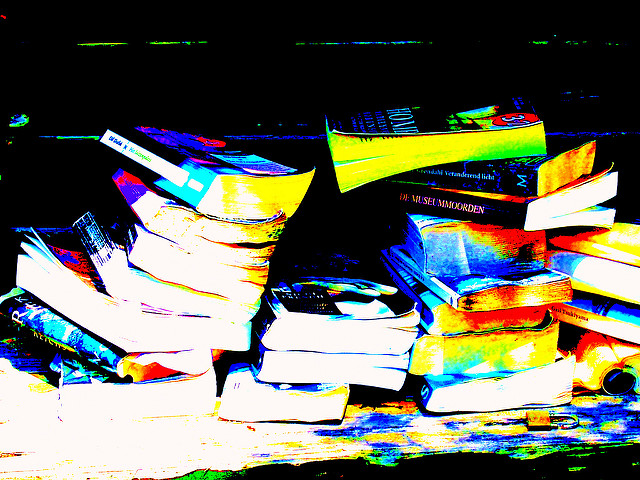When I was growing up, our friend Erica had one of those big backyard trampolines. Because her parents and my parents were beyond BFF, we spent many hours trying to conquer the butt-knees-back-up and playing add-a-trick. It was magical.
It wasn’t until late elementary that my dad decided to get us a trampoline for our own backyard. We loved it. This set of springs got plenty of wear. Then we reached a point when the only time we played Popcorn was when our friends were over. We didn’t dislike it nor were we bored with it; the trampoline simply lost its magic. It became ordinary.
Watching my own children jump with glee the other day, I reflected on how frequently this happens. We allow the magic to dust off when we make it commonplace, which I believe to be the real reason God tells us to “be holy.”
Much of the first testament gives instruction about how to keep certain things separate: men from women, wheat from beans, cotton from polyester.* Often we read this with a cultural lens that one of those things is less than the other. Not good enough. Even, dangerous. We approach the idea of holiness as if the ordinary makes the holy dirty; hence “unclean” (literally, “polluted” in the Hebrew).
I see this change through the words of Jesus. He tells people, often through parable, to let the weeds grow among the wheat. He says God will sort the sheep and goats. This makes sense, coming from a ridiculously terrible farmer who believes good things can grow in hard places.
The common, the seemingly less-than, can do nothing to change the nature of the holy. Like a life-long islander, we get used to the scenery and forget its magic. The mountains aren’t less majestic or the waves less soothing. We’ve simply made the holy, ordinary.
The good news: we can reverse this. Actually, when you read many of God’s commands and you find this great reversal at work.
Three meals a day, every day, often made from the same thing? The people could complain of another bowl of lentils but God says to bless them. Give thanks for the rain and the sunshine, miracles outside of your own control, required to make them grow. Did you know that the most devout Jews pray a toilet prayer (my term, not theirs), thanking God that all systems work like they’re supposed to? If ever there was a place to mix the ordinary and the divine, the bathroom is a good starting point.
My cousin works in the bridal industry. Every day, she sees young women on the cusp of what they imagine to be the most amazing day of their lives. Each and every one of them are special and unique; yet she can see 5 of them in a day. The 300 dresses hang on the rack as inventory. They’re numbered.
But when a bride walks out of the dressing room, sometimes with happy tears, it’s no longer a pile of satin or lace – it’s the dress. At least, to this bride, it is. Laura’s job is no longer to take measurements and find a matching veil; it’s to honor the magic amid one of her most ordinary days.
And this is the work for most of us. Teachers may tie shoes or plan lessons on long division or recount the events of the first world war. Ordinary, everyday stuff. Or, they’re inspiring children to ask questions, to follow their curiosity and find solutions to problems. Inspiration. Literally: to breathe into. (You know who did that first, don’t you? That first, holy work of making things come to life? Oh, yes, I just compared teachers to Genesis 1.)
A dentist or a doctor might feel as if they’re diagnosing or prescribing, but to the person who finally feels relief, they’re doing the holy work of healing.
We tend to make the magical into the monotonous. It’s just another day, another school year, another student/customer/patient/client. But we can seek the divine spark in the most ordinary of all things. By the nature of creation, God’s fingerprints cling to every day, person and place. The work of holiness is to see it and honor it as such.
*I’m being funny. I know the cotton/poly blend was not an ancient stumbling block. But something was, because Deuteronomy 22:11 exists.


